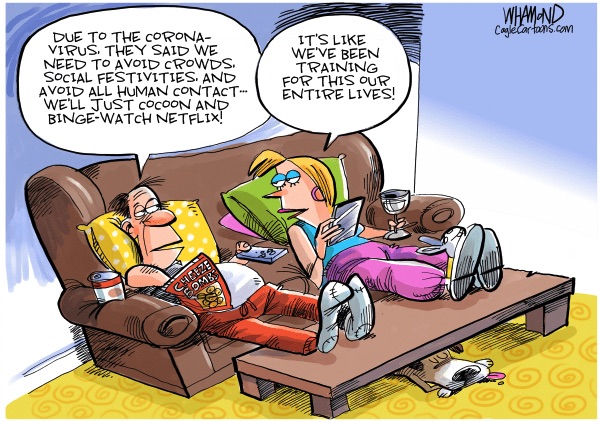Back to Normal – Is It the Best Goal?
Climate Change-Inducing Gas Emissions Are Significantly Diminished

Taking a rest on the shoulder of Montecito Peak the other day I admired the beauty of the clear blue sky above a little bright cloud peeking from behind the peak but realized something was missing from the panorama. Narrow vapor trails usually parallel the sky above the Camino and disperse and widen as they drift over town and across the channel, but there were none. No planes were flying that day and likely very few will during the coronavirus pandemic. While today is near the beginning of a likely long string of bad days for its human inhabitants, it was a good day for the earth. The emission of climate-change inducing gases has significantly diminished due to the sidelining of our cars, airplanes and cruise ships as we hunker down to survive the pandemic.
As a City of Santa Barbara Water Commissioner 20 years ago, I witnessed what I consider to be a remarkable change in our behavior. The decisions to build a desal plant and buy into the state water morass due to that last drought was agonizing for a community that prided itself on living within it means. The “March Miracle” rain event of course immediately then provided a glut of water to augment our costly newfound sources. The behavior change that seemed so remarkable to me was the fact that we did not immediately (or really ever, as far as I know) resume consumption at pre-drought levels. We did this because we had adapted to life with less and, importantly, had become more thoughtful regarding water use. This new austerity happened notwithstanding a tempting new plentiful supply.
This type of transformational thoughtfulness and behavior change can and should be encouraged again, this time with the higher and more daunting goal of stemming climate change.
Yes, presumably most of us want our lives to be restored to normal as soon as possible and while many lives will never be as they were due to trauma and losses we are starting to experience, they will eventually include the opportunities to travel by car, airplane and cruise ship once again. But what if we resume these earth-detrimental activities with a reduced appetite? While certainly more complex a dynamic than the post-drought behavior change example, we could start thinking and acting in a more sustainable manner when it comes to use of fossil-fuel powered travel.
Some reductions in commute-related automobile emissions, with people and corporations more comfortable working from home, will likely be automatic but could be bolstered by civil movement and/or regulation. In-person work meetings requiring air flights could also be significantly reduced by use of available and future technologies. Significant reductions in leisure air travel when we are finally sprung out of confinement and feel compelled to resume our global explorations will likely be the most difficult to achieve.
When the pandemic ends, we can expect the airline and hotel industries, which will have received bailout funding from our tax dollars to survive the pandemic economics, will aggressively encourage us to quickly invoke our freedom to tour the four corners of the globe for their shareholder’s financial benefit. But we can resist this temptation if we remain as mindful of the health of the earth as we are currently of the consequences of our individual roles in stemming the current pandemic. Travel and exploration are absolutely rich elements of our life experience but austerity will allow recovery for specific over-loved destinations (Venice and Iceland, for example) as well as from the general crisis of climate change.
Back to normal is not the best goal, back to way-less than normal fossil-fuel emissions is the best goal. Currently, we are all sacrificing individual liberty for the good of our community and fellow humans worldwide and there can be hope that this pain can be the touchstone of growth in mindfulness and healing actions towards our home planet. Hopefully some of the austerity we are beginning to practice now in response to the pandemic will remain with us and we can continue to sacrifice some individual liberty for the good of the earth and all of its inhabitants, present and future. If we can do this, then there is a silver lining to this grave pandemic in its provision of a stepping stone to the thoughtfulness and austerity that our planet so desperately needs. Let’s embrace this change in behavior, as we may not again be given such a timely opportunity to transform hope into healing.



